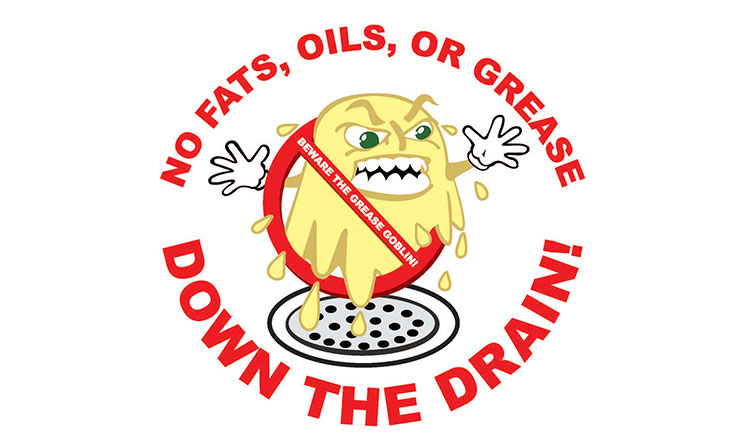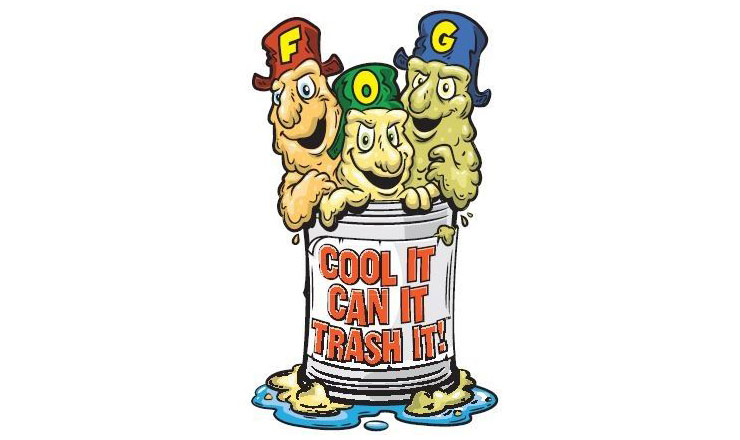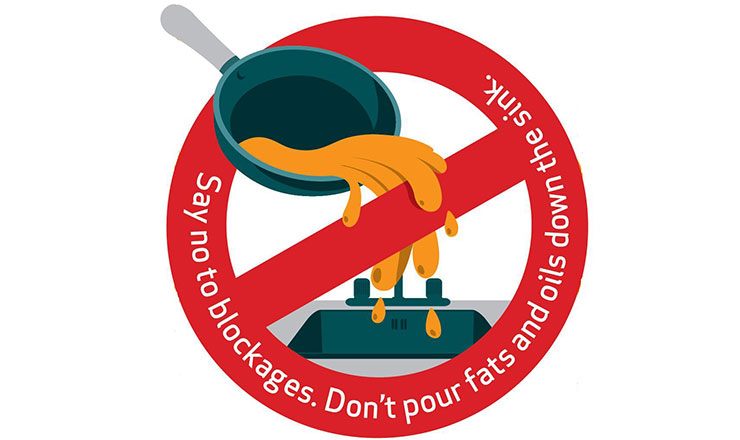Proper Disposal of Fats, Oils and Grease
Fats, oils and grease (also known as F.O.G.) are as bad for sewer pipes as they are for our arteries and waistlines. F.O.G. clogs sewer pipes and causes blockages that result in costly sewer backups and overflows. These sewer backups and overflows can cause health hazards, damage home interiors and threaten the environment.
Protect Pipes From Fats, Oils and Grease (F.O.G.) Video

Where does F.O.G. come from?
Most of us know grease as the byproduct of cooking. Grease is found in such things as:
- Meat fats
- Cooking oil
- Shortening
- Butter and margarine
- Food scraps
- Sauces
- Dairy products
- Baking goods
Too often, grease is washed into the plumbing system, usually through the kitchen sink. Grease sticks to the insides of sewer pipes both on your property and in the streets. Over time, the grease can build up and block the entire pipe.
Home garbage disposals do not keep F.O.G. out of the plumbing system. These units only shred solid material into smaller pieces and do not prevent F.O.G from going down the drain.

What We Can Do to Fight F.O.G.
You can help us fight F.O.G. and keep it out of our sewer lines by disposing of it properly.
- Never pour grease down sink drains or into toilets.
- Scrape grease and food scraps from trays, plates, pots, pans, utensils, grills and cooking surfaces into a metal can or your kitchen trash.
- If you have grease left in a pot or skillet after cooking, let it cool and then pour into a metal can. When the can is full, simply throw it in your kitchen trash.
- Do not put grease down garbage disposals. Instead, put baskets/strainers in sink drains to catch food scraps and other solids. Empty the drain basket/strainers into the trash for disposal.

Holiday Turkey Frying Facts – What to do with your leftover oil
Disposing of gallons of fryer oil can seem overwhelming. What do you do with it all? Pouring it down the kitchen sink or storm drain is simply asking for a clogged pipe. Instead, choose one of the following options:
- Cool and strain out any particles. Use a small funnel to pour oil back into the original container for reuse. Oil can be kept for up to six months and reused for up to six hours of fry time.
- The best way to dispose of used cooking oil is to recycle it. Ask one of your favorite restaurants if they will take it from you and recycle it.
- Mix it with unscented kitty litter, sawdust or sand to solidify the oil. Avoid scented or disinfectant types of kitty litter as they can react with the oil and cause a fire.
- Soak up excess oil with newspaper and then place it in the trash.
Information provided by Water Environment Federation

